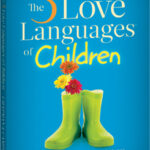 I often get questions from parents on how to manage a child that is chronically willful, angry, sullen, difficult to calm, argumentative and basically a tyrant at home. Below is a ten step holistic approach I have developed for assessing and managing angry children.
I often get questions from parents on how to manage a child that is chronically willful, angry, sullen, difficult to calm, argumentative and basically a tyrant at home. Below is a ten step holistic approach I have developed for assessing and managing angry children.
Managing Your Angry Child
- Take care of yourself:
- When the airbags are dropped in airplane due to decompression, you are instructed to put your bag on first—before applying one for your child. If you lose consciousness, you won’t be able to save your child. Using this metaphor for parenting, you have to take care of yourself before you can help your child. It’s important as a parent to manage your own mental health and feelings of resentment and hopelessness—so you can help your angry child. These steps will help you do just that.
- Assess the school environment:
- Is the child being bullied at school or feeling academic pressure? Often unresolved external forces can leave a child feeling scared, sad and angry. It’s best to take time to investigate any school-related issues and support your child in those areas if anything does arise.
- Assess the home environment:
- Is your parenting strategy punitive or harsh. Perhaps you grew up that way and think nothing of it, but it could be having a negative effect on your son or daughter. There is a high correlation between lots of yelling in the home and oppositional defiance.
- Learn his or her Love Language:
- Angry children may have a very small “Love Tank,” or one with a large hole in the bottom, requiring constant filling. The Love Tank is the amount of love that your child needs to stay centered and grounded. Some children (and adults), due to their biological makeup, simply need more. Learn your child’s Love Language to fill up their tank by reading the book The Five Love Languages for Children by Gary Chapman. Some children may respond better to physical touch, while others prefer quality time or gifts. Make sure you know your child’s love language to fill up their tank efficiently. This link provided offers your child a chance to discover their own love language. https://www.5lovelanguages.com/profile/children/ Refilling your child’s Love Tank using the correct Love Language might alone be restorative for your son or daughter’s rage problem.
- List the problematic behaviors:
- It’s important to be specific about the undesirable behaviors that your child is demonstrating—as opposed to just saying he’s misbehaving or bad. Labeling your child as “bad” or “misbehaving” can actually enflame a chronically angry child. By finding out the specific behaviors that you don’t like, you can begin to reshape his or her behavior.
- Praise your child when showing positive behaviors:
- Once you have the list of specific problematic behaviors you don’t like in your child, then flip those and praise your child when they are actually doing the opposite. For example: If your child usually yells at you whenever you ask them to do something, then simply flip that. When they follow your instructions without yelling, then give them a hug and praise them for listening to you and following your directions. This is simple behavior training, but too often parents neglect this or focus too much on the negative aspects of their child’s behavior (which only serve to reinforce his or her negative self image).
- Professional Opinion:
- Finally, if all these don’t work, it might be time to take him to a professional to further assess what is happening to your child. The issues could be deep and out of the child’s own awareness or they could be biological, requiring a different form of intervention (e.g., medication).
Staying sane while parenting an angry child can be very challenging. Focus on your own mental health and self-care by using the above formula to seek change in your son or daughter.
